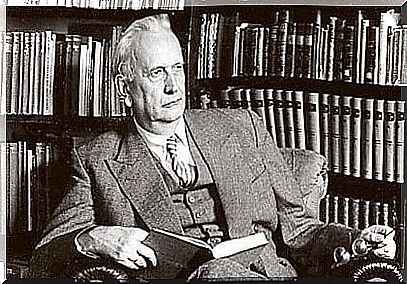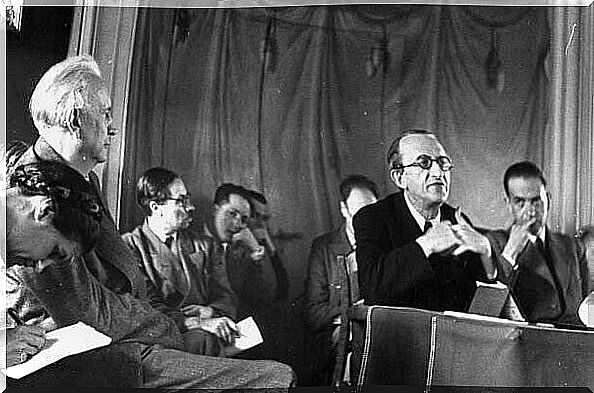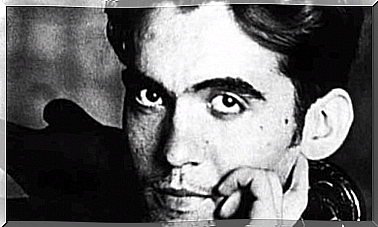Karl Jaspers And The Biographical Method In Psychiatry

Karl Jaspers was a German psychiatrist and philosopher who had a great impact on the sciences of the mind and had enormous relevance during the German reconstruction. He is considered one of the pioneers of existential philosophy. He is also recognized for having created the biographical method, applicable in psychiatry.
Jaspers was born in Oldenburg (Germany) in 1883. He studied medicine at the University of his native place and did his doctorate there, in 1909. He immediately began his psychiatric practice at the Heildelberg University Hospital. Soon, he was seized with an enormous concern to know the way in which mental illness was approached back then.
From 1921, Karl Jaspers became a professor of psychology, within the faculty of philosophy, at the University of Heildelberg. Little by little, teaching occupied all his interests and then he withdrew from clinical practice , which caused him uneasiness.
Nazism and a halt in the life of Karl Jaspers
Karl Jaspers was German, but his wife, Gertrud Mayer, was of Jewish descent. For this reason, with the rise of Nazism, he was relieved of his position as a professor at the university. World War II was a tough test for him and his family. He only regained his chair in 1946, once the war ended.

Since then, Karl Jaspers became an important figure in the German reconstruction. In particular, he was one of those in charge of restoring the normal development of education. His main objective was to eradicate all Nazis from German educational establishments.
Soon he was also disillusioned with politics in general. That is why he decided to go to work at the University of Basel in 1948. The constant disappointments and the war itself definitively marked his existentialist perspective.
The Biographical Method of Karl Jaspers
One of the main contributions of Karl Jaspers to psychiatry was the biographical method. It basically consists of asking the patient to report in writing how they perceived their symptoms. In other words, that he consigned his vision of reality. This gave valuable elements to understand what was happening in his mind.
Its importance lies in the fact that it gives value to the patient’s word in psychiatry, something that does not happen frequently in modern psychiatry. In more biologicist approaches, the patient’s words are seen as a product of brain malfunction. The biographical method, on the other hand, gives value to these “nonsense” and understands them as a way to understand the alterations in the patient’s perception.

Likewise, Karl Jaspers kept a meticulous written follow-up of the biography of his patients. In particular, he described his symptoms as accurately as possible. He was looking for elements in the lives of the sick that would make it possible to understand the disorder they presented.
Other contributions by Karl Jaspers
Karl Jaspers also postulated the existence of two types of delusions: primary and secondary. The primary delusion is one that arises for no apparent reason and in turn is autonomous and incomprehensible from a psychological point of view. The secondary delusion, on the other hand, arises as an attempt to explain anomalous experiences and is psychologically understandable. Hence also the importance of the biographical method to elucidate the nature of the delusion involved in the disease.
The conclusions of his research and reflections were published in a book called General Psychopathology. This became a classic of psychiatry and laid the foundation for the further development of this science.
Jaspers also dabbled in philosophy and theology with great success. Works such as Philosophy and Existence or Philosophy and World gave him great notoriety. Unfortunately, the work of Karl Jaspers is difficult to access. He is a hermetic writer who is understood only after reading a lot.
The last years of Jaspers
Politics, religion, and philosophy were always within Karl Jaspers’ range of interests. There are several his essays on these issues. One of his most interesting texts was The Atomic Bomb and the Fate of Man .

Much of Jaspers’ work shows utter disappointment in his country. It was precisely this disappointment that led him to renounce his German nationality in 1967. Since then he became a citizen of the Helvetic Community.
Throughout his life he received a large number of recognitions. The most important were the Goethe Prize, in 1947 and the Erasmus Prize, in 1961. He was also awarded honorary doctorates from different universities. He died as a Swiss citizen in Basel in 1969.









